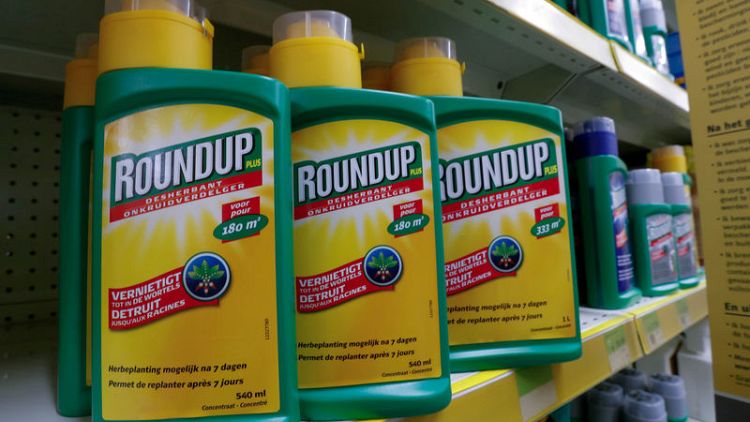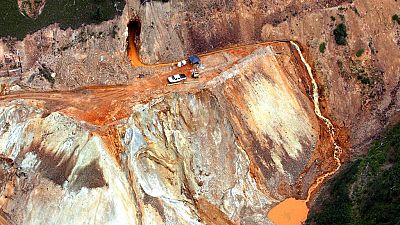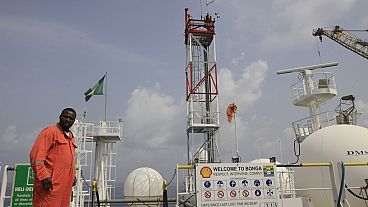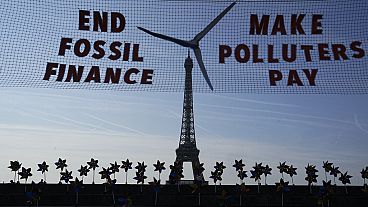By Brendan Pierson
(Reuters) - Bayer AG on Wednesday asked a California appellate court to throw out a $78 million (60 million pounds) judgement it was ordered to pay to a school groundskeeper who claimed the company's weed killers gave him cancer.
In a filing in California's Court of Appeal, First Appellate District, the company said that there was "no evidence" that glyphosate, a chemical found in the company's Roundup and Ranger Pro products, could cause cancer.
"Bayer stands behind these products and will continue to vigorously defend them," the company said in a news release.
The widely-used weed killers are made by Monsanto, which Bayer acquired last year for $63 billion.
The company said that if the court did not rule in its favour, it should at least order a new trial, arguing that a lower court judge had improperly prevented jurors from hearing evidence that the U.S. Environmental Protection Agency and foreign regulators had deemed glyphosate not likely carcinogenic to humans.
A lawyer for the groundskeeper, Dewayne Johnson, could not immediately be reached for comment.
Johnson sued Monsanto in 2016. In August 2018, following a trial in the Superior Court of California in San Francisco, a jury awarded him $39 million in compensatory damages and $250 million in punitive damages, a total of $289 million.
The verdict, which marked the first such decision against Monsanto, wiped 10 percent off Bayer's value, and shares have since dropped nearly 30 percent from their pre-verdict value.
Judge Suzanne Bolanos, who oversaw the trial, then issued a tentative opinion saying she planned to strike the entire punitive damages award because there was no evidence Monsanto acted with malice. Following a hearing last October, she instead cut the award to $39 million, for a total judgement of $78 million.
In another brief filed with the appeals court on Wednesday, Bayer said that decision came after newspaper articles and emails from five jurors in the case meant to "pressure" Bolanos to uphold the punitive damages award.
Bayer, which faces more than 11,000 U.S. lawsuits over glyphosate, says decades of scientific studies and real-world use have shown glyphosate to be safe for human use.
While the EPA and regulators from several other countries have said glyphosate was not likely to cause cancer, the cancer unit of the World Health Organization in 2015 classified glyphosate as "probably carcinogenic to humans."
(Reporting By Brendan Pierson in New York; Editing by Bill Berkrot)



